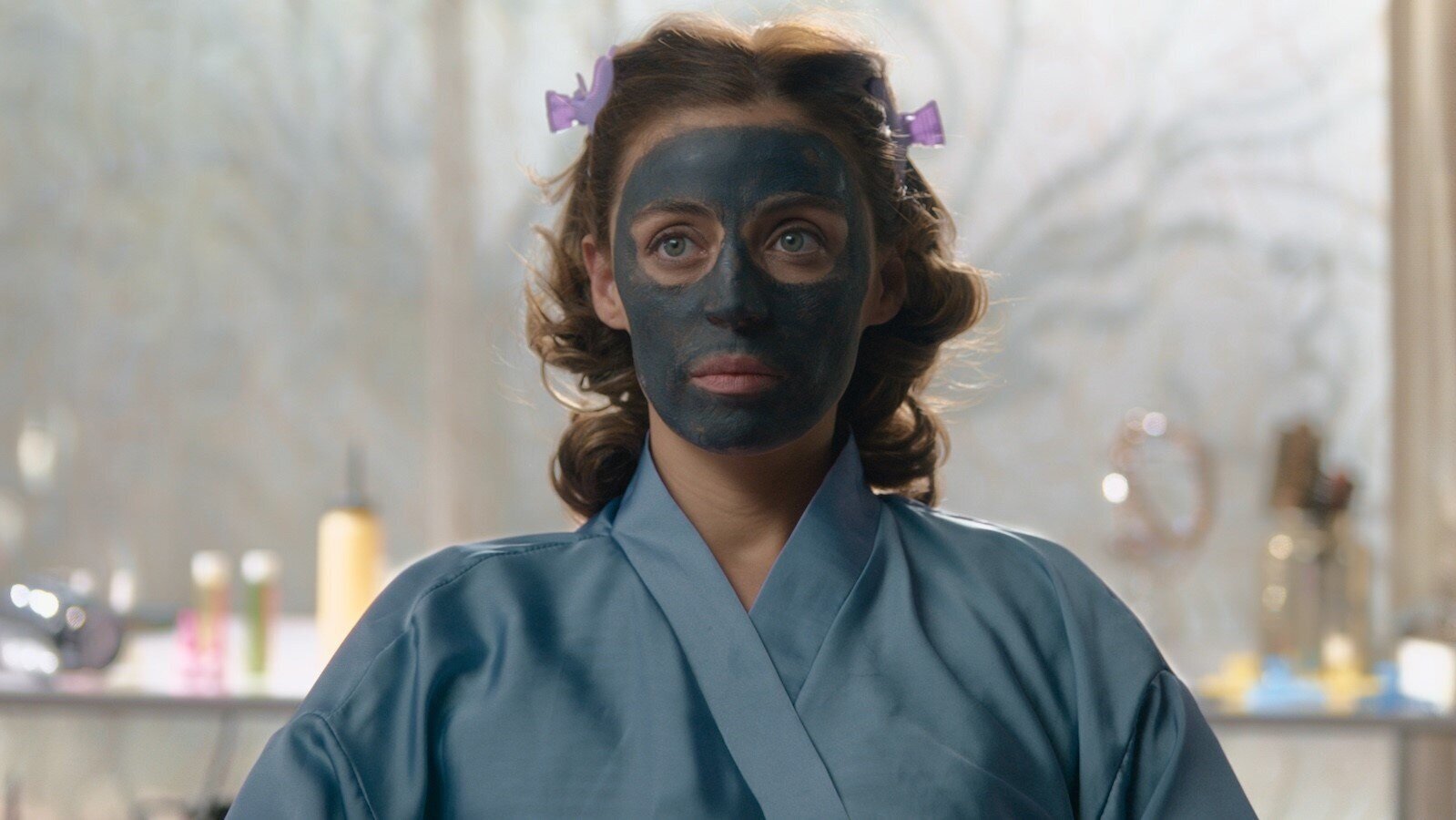The Good Girls
The life of which many people dream is here revealed in all its inadequacies.
Ilse Salas
This second feature from Mexico's Alejandra Márquez Abella confirms that she has already acquired a voice of her own and has achieved this in the dual capacity of writer and director. She acknowledges that the roots of this work, a piece set in Mexico in 1982 at a time of economic crisis, lie in the stories and characters of Guadalupe Loaeza but even so The Good Girls emerges as very much Abella's film. The central character is Sofía de Garay (Ilse Salas) who lives a life of luxury as the wife of a businessman, Fernando (Flavio Medina), and the film - one in which the female characters are the more numerous and more important than the men - takes a jaundiced view of the wealthy people who provide its central focus. That being so, one might have expected that its tone would be biting and angry and some viewers might wish that it were so, but I find that its quiet and more insightful approach adds to the fascination of the film.
The credit for costume designs goes to Annaí Ramis and clothes play a major role in defining the upper class life-style depicted here with great conviction. For Sofía's birthday party which opens the film she wears a dress from New York and later when shopping locally she seeks an exclusive design. She has indeed achieved the dream which is described in this film as being shared by most Mexican women, namely to live like a princess. But from the start it is clear that Abella regards this as an empty world of surfaces and the truth of that is brought home when Sofía finds herself shunned by those she had called friends once it becomes known that problems in the family business are putting the family themselves in debt (the passport to success and acceptance in this society being money not class).
Ilse Salas's central performance never conceals Sofía's snobbery including her dislike of a parvenu, Ana Paula (Paulina Gaitán), keen to enter the circle of the elite and she can be ruthlessly cruel when offended. Even so, she is more victim than monster having married well at the behest of a mother who had let her down only to discover in time the emptiness of her goal. She is stronger than her husband whose confidence she seeks to build up but she is herself trapped by the superficiality of a life-style aspired to yet utterly unrewarding. What Abella gives us is a work with a female perspective, Sofia Coppola being the filmmaker whose style is closest to hers. At the same time the tone feels personal to her although it may take a Mexican viewer or someone familiar with that country in the 1980s to appreciate to what extent the film is also intended as a critique of the government's handling of the economy (the film ends with President Portillo being booed but it is the social situation in which the misguided Sofía finds herself that feels central). I had doubts about the effectiveness of the off-beat music score by Tomás Barreiro which extends to a repeated use of clapping, but in all other respects The Good Girls shows great assurance and marks out Alejandra Márquez Abella as a filmmaker capable of putting a personal stamp on her work on more than one level.
Original title: Las niñas bien.
MANSEL STIMPSON
Cast: Ilse Salas, Flavio Medina, Cassandra Ciangherotti, Paulina Gaitán, Johanna Murillo, Diego Jáuregui, Regina Flores Ribot, Ana José Aldrete, Pablo Chenor, Daniel Haddad, Jimena Guerra, Claudia Lobo.
Dir Alejandra Márquez Abella, Pro Mariá José Cordova, Rodrigo Sebastian González, Rafael Ley and Gabriela Maire, Screenplay Alejandra Márquez Abella, from characters created by Guadalupe Loaeza, Ph Dariela Ludlow, Art Dir Claudio Ramírez Castelli, Ed Miguel Schverdfinger, Music Tomás Barreiro, Costumes Annaí Ramos.
Woo Films/Terminal-MUBI.
99 mins. Mexico. 2018. Rel: 24 July 2020. Available on MUBI. Cert. 12A.


